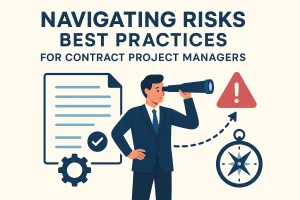Introduction to Cost Tracking in Project Management
Cost tracking is a critical component of project management that involves monitoring and managing the financial resources allocated to a project. It encompasses the processes of estimating, budgeting, and controlling costs to ensure that a project is completed within its financial constraints. Effective cost tracking not only helps in maintaining the financial health of a project but also plays a vital role in decision-making, resource allocation, and overall project success.
Significance of Cost Tracking
- Budget Adherence: Cost tracking enables project managers to compare actual expenditures against the budgeted amounts, ensuring that the project remains financially viable. This adherence is crucial for maintaining stakeholder trust and securing future funding.
- Resource Allocation: By accurately tracking costs, project managers can identify areas where resources may be over or under-utilized, allowing for more informed decisions regarding resource allocation.
- Performance Measurement: Cost tracking provides essential data that can be used to measure project performance. It helps in identifying variances and understanding the reasons behind them, which is vital for continuous improvement.
Common Challenges in Cost Tracking
Despite its importance, cost tracking presents several challenges that can hinder effective project management:
- Data Inaccuracy: One of the most significant challenges is the potential for inaccurate data entry, which can lead to misleading financial reports and poor decision-making.
- Complexity of Projects: As projects grow in size and complexity, tracking costs across multiple teams, locations, and phases can become increasingly difficult.
- Lack of Real-Time Data: Many organizations struggle with obtaining real-time data, which is essential for timely decision-making. Delays in data reporting can result in missed opportunities to address cost overruns or inefficiencies.
- Integration Issues: Cost tracking often requires data from various sources, including accounting systems, project management tools, and spreadsheets. Integrating these disparate systems can be a significant hurdle.
The Evolving Role of Data Analytics
Data analytics is transforming the landscape of cost tracking in project management by providing powerful tools and methodologies to address the challenges mentioned above. Here’s how data analytics enhances cost tracking accuracy:
- Predictive Analytics: By leveraging historical data, predictive analytics can forecast future costs and identify potential financial risks before they materialize. This proactive approach allows project managers to implement corrective measures early on.
- Real-Time Monitoring: Advanced data analytics tools enable real-time tracking of expenses, providing project managers with up-to-date information that facilitates timely decision-making. This immediacy helps in quickly addressing any discrepancies between budgeted and actual costs.
- Data Visualization: Data analytics tools often include visualization capabilities that allow project managers to see financial data in intuitive formats, such as graphs and dashboards. This visual representation makes it easier to identify trends, patterns, and anomalies in cost data.
- Enhanced Reporting: With data analytics, project managers can generate detailed reports that provide insights into cost performance, helping stakeholders understand the financial status of the project at a glance.
Understanding Data Analytics in Cost Tracking
Effective cost tracking is crucial for ensuring that projects are completed within budget and resources are allocated efficiently. Data analytics plays a transformative role in refining cost management processes, enabling project managers and data analysts to make informed decisions based on real-time data. This section delves into the significance of data analytics in cost tracking, the various types of analytics, and the tools that facilitate this process.
Defining Data Analytics and Its Relevance to Cost Management
Data analytics refers to the systematic computational analysis of data, which helps organizations extract meaningful insights and patterns from large datasets. In the context of cost management, data analytics is essential for:
- Identifying Trends: By analyzing historical cost data, project managers can identify spending patterns and trends that inform future budgeting decisions.
- Enhancing Accuracy: Data analytics minimizes human error in cost estimation and tracking, leading to more accurate financial forecasts.
- Improving Decision-Making: With access to real-time data, project managers can make timely decisions that impact project outcomes positively.
The relevance of data analytics in cost management cannot be overstated; it empowers teams to optimize resource allocation, reduce waste, and ultimately enhance project profitability.
Types of Data Analytics
Data analytics can be categorized into three main types, each serving a distinct purpose in cost tracking:
- Descriptive Analytics: This type focuses on summarizing historical data to understand what has happened in the past. In cost tracking, descriptive analytics can provide insights into previous project expenditures, helping teams to identify areas of overspending or cost savings.
- Predictive Analytics: Predictive analytics uses statistical models and machine learning techniques to forecast future outcomes based on historical data. For cost tracking, this means predicting potential cost overruns or resource needs, allowing project managers to proactively address issues before they escalate.
- Prescriptive Analytics: This advanced form of analytics recommends actions based on data analysis. In the context of cost management, prescriptive analytics can suggest optimal resource allocation strategies or budget adjustments to enhance project efficiency and effectiveness.
Tools and Technologies for Cost Tracking
Several tools and technologies are commonly employed in data analytics for cost tracking, enabling project managers to harness the power of data effectively:
- Business Intelligence (BI) Tools: Platforms like Tableau, Power BI, and QlikView allow users to visualize data and generate reports that provide insights into project costs and performance metrics.
- Project Management Software: Tools such as Microsoft Project, Asana, and Trello often integrate data analytics features that help track costs in real-time, providing dashboards that display budget status and expenditure trends.
- Data Analytics Platforms: Solutions like Google Analytics, SAS, and R offer advanced analytical capabilities, enabling deeper analysis of cost data and the application of predictive and prescriptive analytics.
- Spreadsheet Software: While more traditional, tools like Microsoft Excel and Google Sheets remain popular for cost tracking due to their flexibility and the ability to perform custom analyses using formulas and pivot tables.
The Benefits of Integrating Data Analytics into Cost Tracking
Effective cost tracking is crucial for ensuring that projects are completed within budget and on time. By leveraging data analytics, project managers and data analysts can significantly enhance the accuracy and efficiency of their cost management processes. Here are some key benefits of integrating data analytics into cost tracking:
- Enhancing Accuracy in Cost Forecasting and Budgeting: Data analytics allows for the analysis of historical data and trends, which can lead to more precise cost forecasting. By utilizing predictive analytics, project managers can create more reliable budgets that reflect potential future expenses based on past project performance. This proactive approach minimizes the risk of budget overruns and helps in setting realistic financial expectations for stakeholders.
- Identifying Cost Overruns and Variances in Real-Time: One of the most significant advantages of data analytics is its ability to provide real-time insights into project costs. By continuously monitoring expenditures against the budget, project managers can quickly identify any variances or cost overruns. This immediate feedback enables timely corrective actions, ensuring that projects remain on track financially and reducing the likelihood of costly surprises at the project’s conclusion.
- Improving Decision-Making Through Data-Driven Insights: Data analytics empowers project managers to make informed decisions based on concrete evidence rather than intuition. By analyzing cost data alongside other project metrics, managers can identify patterns and correlations that inform strategic choices. For instance, understanding which phases of a project typically incur higher costs can guide resource allocation and risk management strategies, ultimately leading to more successful project outcomes.
- Streamlining Processes and Reducing Administrative Burdens: Integrating data analytics into cost tracking can automate many of the manual processes traditionally associated with budget management. By utilizing advanced analytics tools, project teams can reduce the time spent on data entry and reporting, allowing them to focus on more strategic tasks. This streamlining not only enhances efficiency but also minimizes the potential for human error, leading to more accurate financial reporting.
Best Practices for Implementing Data Analytics in Cost Tracking
Effective cost tracking is crucial for ensuring projects are completed within budget and resources are utilized efficiently. By leveraging data analytics, project managers and data analysts can enhance the accuracy of cost management processes. Here are some best practices to consider when implementing data analytics in cost tracking:
1. Establish Clear Objectives for Cost Tracking and Analytics
- Define Specific Goals: Begin by identifying what you aim to achieve with cost tracking. This could include reducing costs, improving budget forecasting, or enhancing resource allocation. Clear objectives will guide the analytics process and help in measuring success.
- Align with Project Outcomes: Ensure that the cost tracking objectives align with the overall goals of the project. This alignment will facilitate better decision-making and prioritization of resources.
2. Ensure Data Quality and Integrity for Accurate Analysis
- Data Validation: Implement processes to regularly validate the data being collected. This includes checking for accuracy, completeness, and consistency. High-quality data is essential for reliable analytics.
- Standardize Data Collection: Use standardized methods for data collection across all project phases. This consistency helps in minimizing errors and discrepancies, making it easier to analyze and interpret the data.
3. Utilize Visualization Tools to Simplify Data Interpretation
- Adopt Visualization Software: Leverage tools like Tableau, Power BI, or Google Data Studio to create visual representations of cost data. Visualizations can help in identifying trends, patterns, and anomalies that may not be apparent in raw data.
- Create Dashboards: Develop interactive dashboards that provide real-time insights into project costs. Dashboards can help project managers quickly assess financial health and make informed decisions based on current data.
4. Foster Collaboration Between Project Managers and Data Analysts
- Encourage Open Communication: Establish regular communication channels between project managers and data analysts. This collaboration ensures that both parties understand the project’s financial goals and can work together to achieve them.
- Joint Training Sessions: Organize training sessions that bring together project managers and data analysts to enhance their understanding of data analytics tools and techniques. This shared knowledge can lead to more effective cost tracking strategies.
By implementing these best practices, project managers and data analysts can harness the power of data analytics to refine their cost management processes. This not only enhances the accuracy of cost tracking but also contributes to the overall success of projects by ensuring that financial resources are managed effectively.
Future Trends in Data Analytics and Cost Tracking
The integration of data analytics into cost tracking processes is becoming increasingly vital. The future of cost management will be significantly influenced by emerging technologies, particularly artificial intelligence (AI) and machine learning, as well as the growing capabilities of big data and real-time analytics. Here are some key trends to watch:
1. Emerging Technologies: AI and Machine Learning
- Predictive Analytics: AI and machine learning will enable project managers to leverage predictive analytics for more accurate forecasting of project costs. By analyzing historical data, these technologies can identify patterns and trends that inform budget estimates, helping to minimize overruns and enhance financial planning.
- Automated Cost Tracking: Machine learning algorithms can automate the cost tracking process by continuously analyzing project expenditures against budgets. This automation reduces human error and allows project managers to focus on strategic decision-making rather than manual data entry and reconciliation.
- Enhanced Decision-Making: AI-driven tools can provide real-time insights and recommendations based on current project data. This capability allows project managers to make informed decisions quickly, adapting to changes in project scope or resource allocation without significant delays.
2. Evolution of Data Analytics in Project Management
- Integration of Advanced Analytics: The future will see a deeper integration of advanced analytics into project management software. This integration will facilitate a more holistic view of project performance, combining cost data with other key performance indicators (KPIs) to provide a comprehensive understanding of project health.
- User-Friendly Interfaces: As data analytics tools become more sophisticated, there will be a push for user-friendly interfaces that allow project managers and data analysts to easily interpret complex data sets. This accessibility will empower more stakeholders to engage with data-driven insights, fostering a culture of informed decision-making across teams.
- Collaboration and Data Sharing: The trend towards collaborative project management will be enhanced by data analytics. Tools that allow for seamless data sharing among team members and stakeholders will become essential, ensuring that everyone has access to the same information and can contribute to cost management discussions.
3. Implications of Big Data and Real-Time Analytics
- Real-Time Cost Monitoring: The ability to analyze big data in real-time will revolutionize cost tracking. Project managers will be able to monitor expenditures as they occur, allowing for immediate adjustments to budgets and resource allocations. This capability will lead to more agile project management practices.
- Data-Driven Insights: With the influx of big data, project managers will have access to a wealth of information that can inform cost management strategies. By utilizing data analytics, they can uncover insights related to spending patterns, resource utilization, and project performance, leading to more effective cost control measures.
- Risk Management: Real-time analytics will also enhance risk management in cost tracking. By continuously analyzing data, project managers can identify potential financial risks early and implement mitigation strategies before they escalate into significant issues.
Conclusion
Accurate cost tracking is not merely a best practice; it is a fundamental necessity that can significantly influence the success of a project. The integration of data analytics into cost management processes has proven to be a game-changer, enabling project managers and data analysts to refine their approaches and enhance the precision of their financial oversight.
Key Takeaways:
- Importance of Accurate Cost Tracking: Accurate cost tracking is essential for maintaining budgetary control, forecasting future expenses, and ensuring that projects are completed within financial constraints. It allows for timely decision-making and helps in identifying potential financial risks before they escalate.
- Role of Data Analytics: Data analytics empowers project managers to gain deeper insights into spending patterns, resource allocation, and overall project performance. By leveraging advanced analytical tools, teams can uncover trends, optimize resource utilization, and make data-driven decisions that enhance cost efficiency.
- Adoption of Best Practices: To fully harness the power of data analytics, project managers and data analysts should adopt best practices such as regular data reviews, utilizing predictive analytics for forecasting, and implementing real-time tracking systems. These practices not only improve accuracy but also foster a culture of accountability and transparency within project teams.
- Continuous Learning and Adaptation: The landscape of project management is ever-evolving, and so too should be the strategies employed for cost management. It is crucial for professionals in this field to engage in continuous learning, stay updated on the latest analytical tools and methodologies, and be willing to adapt their strategies in response to new data insights.
In conclusion, the integration of data analytics into cost tracking processes is not just beneficial; it is essential for modern project management. By embracing these practices, project managers and data analysts can significantly enhance their cost management strategies, leading to more successful project outcomes. The call to action is clear: invest in data analytics, commit to ongoing education, and continuously refine your cost management processes to stay ahead in the competitive landscape of project management.
Find out more about Shaun Stoltz https://www.shaunstoltz.com/about/.
This post was written by an AI and reviewed/edited by a human.


